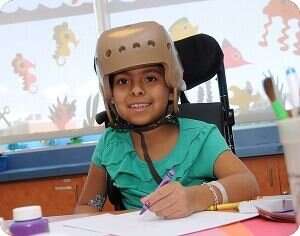
A team of New Jersey researchers conducted a sleep study in inpatients in pediatric rehabilitation using an actigraph, a wrist-worn accelerometer that enables noninvasive continuous monitoring of sleep-wake cycles. This study is the first to use this rest-activity ratio as a measure of sleep-wake regulation in children with brain injury during inpatient rehabilitation. The team’s findings were reported in “Examining the use of a rest-activity ratio in a pediatric rehabilitation setting,” published online on January 31, 2022, by the Archives of Physical Medicine and Rehabilitation.
Authors are Anthony H. Lequerica, Ph.D., Jean Lengenfelder, Ph.D., and John DeLuca, Ph.D., from Kessler Foundation, Hannah Aura Shoval, MD, from Rutgers New Jersey Medical School, Krishan Yalamanchi, MD, and Claire Marchetta, MPH, from Children’s Specialized Hospital, and Jessica Ace, MD, from JFK-Johnson Rehabilitation Institute.
The sleep disruptions that occur during inpatient rehabilitation can adversely affect daytime alertness, interfering with the ability to participate in therapy and impeding cognitive and physical recovery after brain injury. Few studies have addressed this problem in pediatric rehabilitation. Establishing objective measures for sleep in this population is the first step toward improving sleep and maximizing rehabilitation outcomes.
The team tested children aged 8 to 17 years admitted for inpatient rehabilitation, comprising three groups: traumatic brain injury (n=14), nontraumatic brain injury (n=16), and controls (n=13). All participants wore the actigraph (Philips Actiwatch Spectrum Plus) for one week, yielding 5-day averages of rest-activity ratios. Functional status was measured by WeeFIM Cognitive and WeeFIM Motor scores.
“We found lower rest-activity ratios in both brain injury groups compared with the control group,” said lead author Dr. Lequerica, “suggesting poorer sleep-wake regulation in the children with brain injury. The children with lower rest-activity ratios tended to have lower WeeFim Cognitive scores on admission,” he added.
Source: Read Full Article
